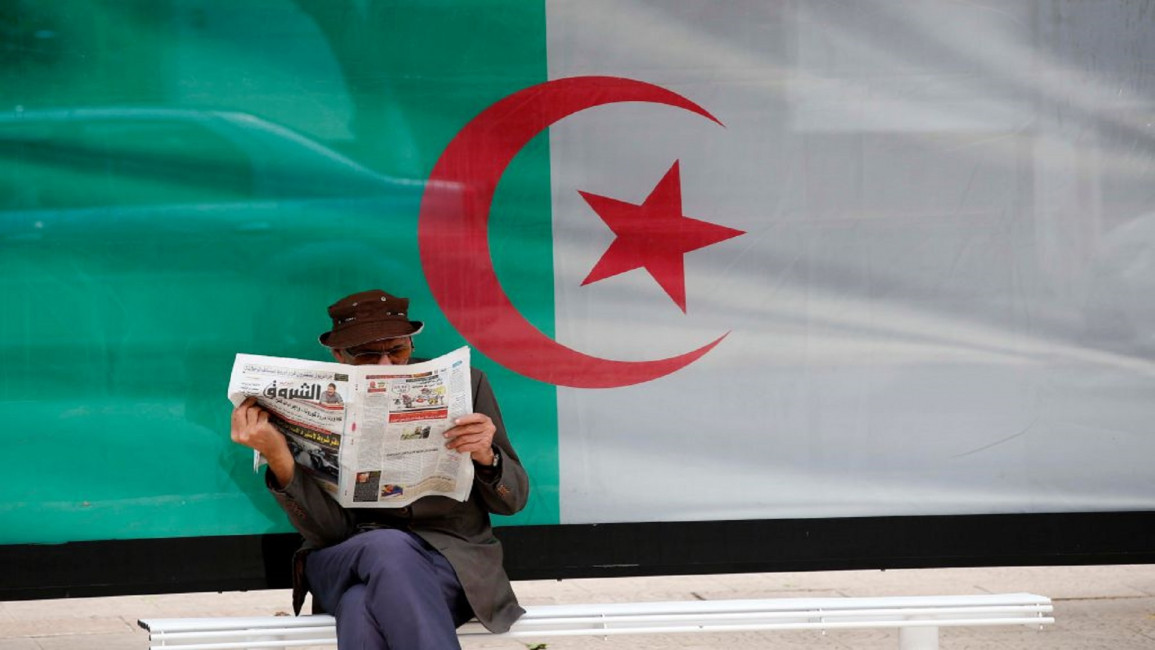Algeria cuts journalist jail term to 15 months
Djamel Toubal, 47, had been sentenced on June 18 to a two-year prison term.
"The prosecution had asked for a tougher sentence but the court reduced it," his lawyer Mustapha Bouchakour told AFP after the ruling in Mascara, northwest Algeria.
Toubal had posted photographs and comments on police treatment of the country's "Hirak" protest movement.
Algeria ranks 146th on the 180-country World Press Freedom Index of media watchdog Reporters Without Borders.
Weekly protests rocked Algeria for more than a year and only came to a halt in March due to the coronavirus crisis, with authorities banning marches although the opposition had already suspended its gatherings.
Since late February, when the opposition movement marked its one-year anniversary, activists and critics across the country have been more frequently arrested, summoned for questioning or sentenced to jail.
According to the National Committee for the Release of Detainees, almost 60 people are still being detained on charges linked to the Hirak.
Twitter Post
|
Last month, Amnesty International said Algeria’s continued arrests of activists, protesters and journalists critical of the government is undermining the credibility of the country’s constitutional reform process.
"The Algerian regime has made a big mistake by turning more repressive against its own people," Rabah Arkam, an Algerian human rights activist, told The New Arab.
"It has exploited the confinement to try to silence the free voices, a bad way to handle the situation during the pandemic".
Recently, the Algerian League for the Defence of Human Rights (LADDH) observed that authorities have routinely resorted to abusive and provisional detention with procedures fully disregarding the rights guaranteed by Algeria's judicial system, and opposing Algeria's obligations towards international treaties and conventions.
The group also found that the majority of political detainees face vague charges such as "undermining national unity", "harming national security" and "harming the army's morale", often based on social media posts.
"The government has taken advantage of this health truce to take on Hirak activists to tighten the grip," Said Salhi, vice-president of LADDH, said.
"Almost every day, we're seeing someone either placed under a committal order or trialled".
President Tebboune announced sweeping constitutional reforms in December, however since then there has been little in the way of transparency about the process and timeline.
Follow us on Facebook, Twitter and Instagram to stay connected


![President Pezeshkian has denounced Israel's attacks on Lebanon [Getty]](/sites/default/files/styles/image_684x385/public/2173482924.jpeg?h=a5f2f23a&itok=q3evVtko)



 Follow the Middle East's top stories in English at The New Arab on Google News
Follow the Middle East's top stories in English at The New Arab on Google News


